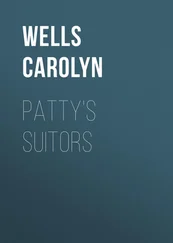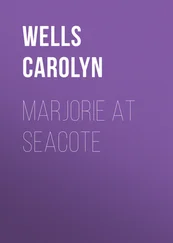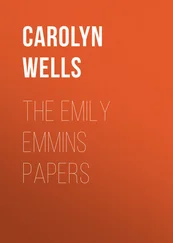Carolyn Wells - Raspberry Jam
Здесь есть возможность читать онлайн «Carolyn Wells - Raspberry Jam» — ознакомительный отрывок электронной книги совершенно бесплатно, а после прочтения отрывка купить полную версию. В некоторых случаях можно слушать аудио, скачать через торрент в формате fb2 и присутствует краткое содержание. Жанр: foreign_prose, Классический детектив, foreign_detective, foreign_antique, на английском языке. Описание произведения, (предисловие) а так же отзывы посетителей доступны на портале библиотеки ЛибКат.
- Название:Raspberry Jam
- Автор:
- Жанр:
- Год:неизвестен
- ISBN:нет данных
- Рейтинг книги:5 / 5. Голосов: 1
-
Избранное:Добавить в избранное
- Отзывы:
-
Ваша оценка:
- 100
- 1
- 2
- 3
- 4
- 5
Raspberry Jam: краткое содержание, описание и аннотация
Предлагаем к чтению аннотацию, описание, краткое содержание или предисловие (зависит от того, что написал сам автор книги «Raspberry Jam»). Если вы не нашли необходимую информацию о книге — напишите в комментариях, мы постараемся отыскать её.
Raspberry Jam — читать онлайн ознакомительный отрывок
Ниже представлен текст книги, разбитый по страницам. Система сохранения места последней прочитанной страницы, позволяет с удобством читать онлайн бесплатно книгу «Raspberry Jam», без необходимости каждый раз заново искать на чём Вы остановились. Поставьте закладку, и сможете в любой момент перейти на страницу, на которой закончили чтение.
Интервал:
Закладка:
“I’m sorry to disappoint you, madam, but this is my last performance.”
“Good gracious why?” Aunt Abby looked curiously at him.
“I have good reasons,” Hanlon smiled. “You may learn them later, if you care to.”
“I do. How can I learn them?”
“Read the Newark Free Press next Monday.”
“Oh!” and Eunice had an inspiration—a premonition of the truth. “May I speak to you alone a minute, Mr. Hanlon?”
She got out of the car and walked a few steps with the young man, who politely accompanied her.
They paused a short distance away, and held a brief but animated conversation. Eunice laughed gleefully, and it was plain to be seen her charming smiles played havoc with Hanlon’s reserved demeanor. Soon he was willingly agreeing to something she was proposing and finally they shook hands on it.
They returned to the car; he assisted Eunice in, and then he told Mr. Mortimer they had stayed as long as was permissible and were being eagerly called back to the committee in charge of the day’s programme.
“That’s so,” said Mortimer. “I begged off for a few minutes. Good-by, all.” He raised his hat and hurried away after Hanlon.
“Well,” said Hendricks as they started homeward, “what did you persuade him to do, Eunice? Give a parlor exhibition for you?”
“The boy guessed nearly right the very first time!” cried Eunice, gleefully; “it was all a fake, and he’s coming to our house Sunday afternoon to tell how he did it. It’s all coming out in the paper on Monday.”
“My good land!” and Aunt Abby sank back in her seat, utterly disgusted.
Chapter IV
The Emburys
“And that’s my last word on the subject.”
Embury lighted one cigarette from the stub of another, and deposited the stub in the ash-tray at his elbow. It was Sunday afternoon, and the peculiar relaxedness of that day of rest and gladness had somewhat worn on the nerves of both Sanford and Eunice.
Aunt Abby was napping, and it was too early yet to look for their expected visitor, Hanlon.
Eunice had been once again endeavoring to persuade her husband to give her an allowance—a stated sum, however small, that she might depend upon regularly. The Emburys fulfilled every requirement of the condition known as “happily married” save for this one item. They were congenial, affectionate, good-natured, and quite ready to make allowances for each other’s idiosyncrasies or whims.
With this one exception. Eunice found it intolerable to be cramped and pinched for small amounts of ready cash, when her husband was a rich man. Nor was Embury mean, or even economical of nature. He was more than willing that his wife should have all the extravagant luxuries she desired. He was entirely ready to pay any and all bills that she might contract. Never had he chided her for buying expensive or unnecessary finery—even more, he had always admired her taste and shown pleasure at her purchases. He was proud of her beauty and willing it should be adorned. He was proud of her grace and charm and willing that the household appointments should provide an appropriate setting for her hospitality. They were both fond of entertaining and never was there a word of protest from him as to the amounts charged by florists and caterers.
And yet, by reason of some crank, crotchet or perverse notion, Embury was unwilling to give his wife what is known as “pin money.”
“Buy your pins at the best jewelers’,” he would laugh, “and send the bills to me; buy your hats and gowns from the Frenchiest shops—you can get credit anywhere on my name—Good Lord! Tiger, what more can a woman want?”
Nor would he agree to her oft-repeated explanations that there were a thousand and one occasions when some money was an absolute necessity. Or, if persuaded, he gave her a small amount and expected it to last indefinitely.
It is difficult to know just what was the reason for this attitude. Sanford Embury was not a miser. He was not penurious or stingy. He subscribed liberally to charities, many of them unknown to the public, or even to his wife, but some trick of nature, some twist in his brain, made this peculiarity of his persistent and ineradicable.
Now, Eunice Embury was possessed of a quick, sometimes ungovernable temper. It was because of this that her husband called her Tiger. And also, as he declared, because her beautiful, lithe grace was suggestive of “the fearful symmetry” of the forest tribe.
She had tried honestly to control her quick anger, but it would now and then assert itself in spite of her, and Embury delighted to liken her to Katherine, and declared that he must tame her as Petruchio tamed his shrew.
This annoyed Eunice far more than she let him know, for she was well aware that if he thought it teased her, he would more frequently try Petruchio’s methods.
So, when she flew into a rage, and he countered with a fiercer anger, she knew he was assuming it purposely, and she usually quieted down, as the better part of valor.
On this particular occasion Eunice had taken advantage of a quiet, pleasant tête-a-tête to bring up the subject.
Embury had heard her pleading, not unkindly, but with a bored air, and had finally remarked, as she paused in her arguments, “I refuse, Eunice, to give you a stated allowance. If you haven’t sufficient confidence in your husband’s generosity to trust him to give you all you want or need, and even more than that, then you are ungrateful for what I have given you. And that’s my last word on the subject.”
The rank injustice of this was like iron entering her soul. She knew his speech was illogical, unfair and even absurd, but she knew no words of hers could make him see it so.
And in utter exasperation at her own impotence, she flung her self-control to the winds, and let go of her temper.
“Well, it isn’t my last word on the subject!” she cried. “I have something further to say!”
“That is your woman’s privilege,” and Embury smiled irritatingly at her.
“Not only my privilege, but my duty! I owe it to my self-respect, to my social position, to my standing as your wife—the wife of a prominent man of affairs—to have at my command a sum of ready money when I need it. You know perfectly well, I do not want it for anything wrong—or for anything that I want to keep secret from you. You know I have never had a secret from you nor do I wish to have! I simply want to do as other women do—even the poorest, the meanest man, will give his wife an allowance, a little something that is absolutely her own. Why, most of the women of my set have a checking account at the bank—they all have a personal allowance!”
“So?” Embury took up another cigarette. “You may remember, Eunice, I have spoken my last word on the subject.”
“And you may remember that I have not! But I will—and right now. And it is simply that since you refuse me the pleasure and convenience of some money for everyday use, I shall get some from another source.”
Embury’s eyes narrowed, and he surveyed his wife with a calm scrutiny. Then he smiled.
“Stenography and typewriting?” he said; “or shall you take in plain sewing? Cut out the threats, Eunice; they won’t get you anywhere!”
“They’ll get me where I want to arrive! Don’t say I didn’t warn you—I repeat, I shall get money for my personal use, and you will have no right to criticize my methods, since you refuse me a paltry sum by way of allowance.”
Eunice was standing, her two hands tightly grasping a chair-back as she looked angrily at Embury, who still seated lazily, blew smoke rings toward her. She was magnificent in her anger, her cheeks burned crimson, her dark eyes had an ominous gleam in them and her curved lips straightened into a determined line of scarlet. Her muscles were strained and tense, her breath came quickly, yet she had full control of herself and her pose was that of a crouching, waiting tiger rather than a furious ode.
Читать дальшеИнтервал:
Закладка:
Похожие книги на «Raspberry Jam»
Представляем Вашему вниманию похожие книги на «Raspberry Jam» списком для выбора. Мы отобрали схожую по названию и смыслу литературу в надежде предоставить читателям больше вариантов отыскать новые, интересные, ещё непрочитанные произведения.
Обсуждение, отзывы о книге «Raspberry Jam» и просто собственные мнения читателей. Оставьте ваши комментарии, напишите, что Вы думаете о произведении, его смысле или главных героях. Укажите что конкретно понравилось, а что нет, и почему Вы так считаете.












